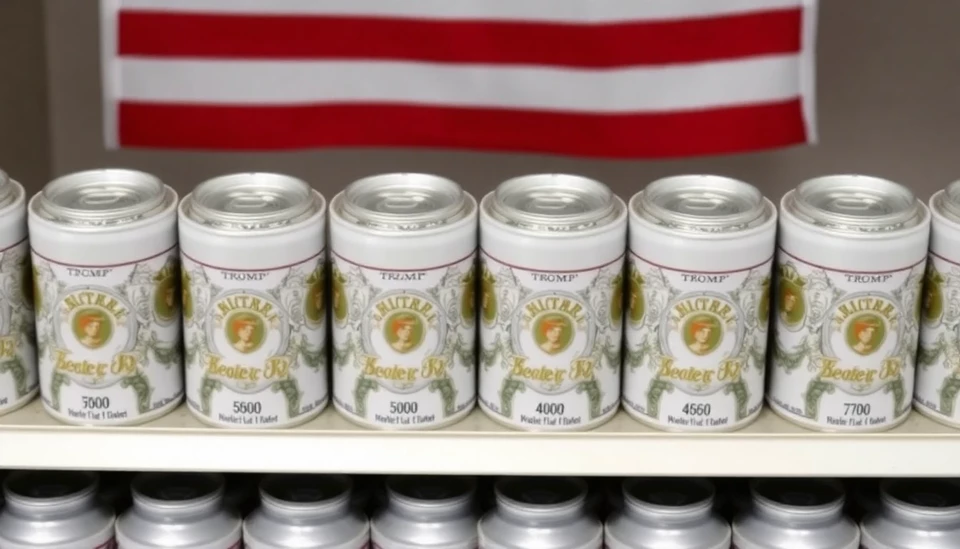
In a bold move that has sent shockwaves through the financial markets, former President Donald Trump has announced his plans to implement reciprocal tariffs on a wide range of imported goods. These tariffs are expected to escalate into a full-blown trade war, as they are intended to mirror tariffs imposed by other countries on U.S. products. This potential upheaval raises alarms among economists and business leaders who warn that such measures could dangerously risk pushing the United States into a recession.
Trump's announcement comes amid increasing concerns over the state of the U.S. economy, which has shown signs of slowing growth in recent months. While his supporters argue that reciprocal tariffs will protect American jobs and industries from foreign competition, critics caution that the long-term impacts could dramatically undermine economic stability. The ripple effects of these tariffs could provoke retaliation from trade partners, raising prices for consumers and creating an unstable market environment.
Experts predict that if these tariffs take effect, the culmination of increased costs will not only affect import prices but also lead to higher inflation. This cycle could squeeze household budgets and reduce consumer spending, which represents a significant driver of economic growth. Furthermore, industries reliant on international supply chains risk facing substantial disruptions, exacerbating logistical challenges and hindering overall productivity.
Making sense of the political landscape, analysts emphasize that Trump's trade policy is not merely economic but deeply rooted in a nationalist agenda that prioritizes American interests over global cooperation. This shift could also carry long-term implications for international relationships, as countries like China and the European Union may respond with tariffs of their own, further entrenching global trade disputes.
Investor sentiment has taken a hit following the announcement, with markets reacting negatively as uncertainty mounts. Companies tied to international trade are facing increased scrutiny and volatility, leading to hesitance in investment. The broader economic effects may ultimately weigh heavily on the stock market, diminishing the wealth and purchasing power of average American citizens.
As the world watches closely, the outcome of Trump's proposed tariffs remains to be seen. The immediate future could see both domestic businesses and consumers caught in the crossfire of competing national interests. With ongoing debates and negotiations looming, the potential for a crisis spiraling out of control raises urgent concerns about the resilience of the American economy.
In conclusion, while the allure of protective tariffs may seem attractive in the short term, experts caution that the long-term consequences present a perilous risk to economic stability. Only time will reveal whether this aggressive trade strategy will bolster American industry or entangle the country in an economic downturn that could have lasting repercussions.
#TrumpTariffs #TradeWar #USEconomy #RecessionRisk #Inflation
Author: Rachel Greene




